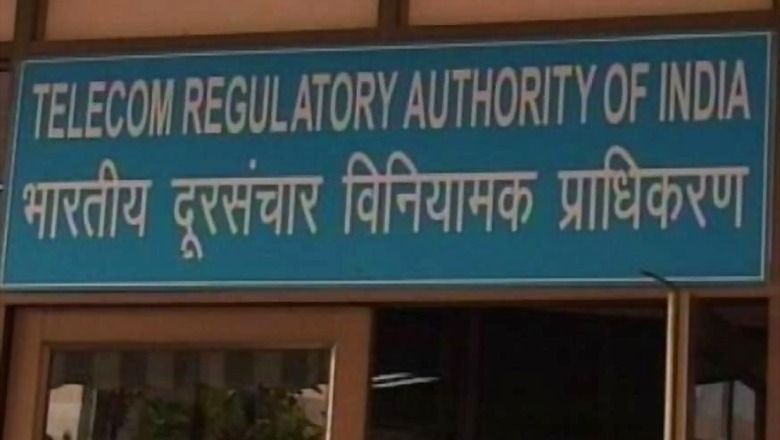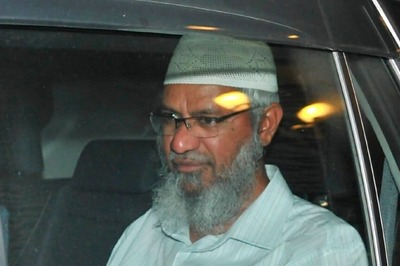
views
New Delhi: Telecom Relugator Author of India contended in the Delhi High Court on Wednesday that it cannot access information through phone tapping or disclose such details as it would “prejudicially affect the sovereignty and integrity of the country”.
The Telecom Regulatory Authority of India told a bench that consisted of Chief Justice Rajendra Menon and Justice V K Rao that phone tapping is carried out by law enforcement agencies and the information gathered by the service providers in this case cannot be accessed by the regulatory authority.
TRAI’s submissions were made in a plea challenging the Central Information Commission's (CIC) order, which claimed that the telecom regulator has powers to find out from service providers about which mobile user's phone was being tapped.
The CIC's order was upheld by a single judge bench of the high court and TRAI, in its appeal, has sought quashing of both the orders.
The high court did not, as an interim direction, stay the single judge's decision after the lawyers for the RTI applicant, on whose plea the CIC order was issued, assured the bench that the commission's order would not be enforced and no contempt plea would be filed against TRAI for not complying with it.
The bench then issued a notice to the RTI applicant, Supreme Court lawyer Kabir Shankar Bose, and asked him to indicate his stand on the plea by the telecom regulator by January 16, 2019, the next date of hearing.
TRAI, in its appeal, has contended that only law enforcement agencies are authorised to intercept or tap phones and disclosure of the same would render such actions infructuous.
The telecom regulator has said that directions for interception of a phone number are issued only by government officials of certain ranks and such information cannot be collated by TRAI and furnished to a consumer/subscriber.
It has also contended that such information, pertaining to the security of the nation, is exempted from disclosure under the Right to Information (RTI) Act.
Bose had moved the CIC after his telecom service provider, Vodafone, declined his request for information on whether his phone was being tapped. The company had claimed that it did not come under the ambit of the RTI Act.
He had then moved TRAI which said it did not have the information he had asked for.
Subsequently, the CIC in its September 12, 2018 order asked TRAI to obtain the information from the telecom company and to provide it to Bose.
The regulator challenged it in the high court and the single judge on November 20 upheld the CIC decision saying that TRAI has the powers to call for any information or conduct an investigation where it considers expedient.
The single judge also said that TRAI has the obligation to get the information from the private body and furnish the same to the service subscriber, Bose.


















Comments
0 comment